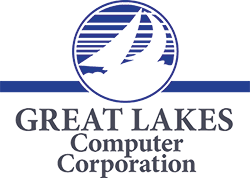Malware going mainstream, warns Symantec
 According to a recent computer safety survey by specialist company Symantec, malware may be lurking in places that users least expect. In previous years, hackers tended to focus their efforts on adult websites and other niche locations that regular business users were unlikely to frequent – including forums discussing methods for violating intellectual property rights. Recently, however, malware creators have changed their strategy. Instead of loading malware onto sites that have long been a primary focus of attention by antimalware researchers, they are now going mainstream, seeking – and finding – ways in which to infect sites that the average user may perceive to be completely innocuous. These mainstream sites even include religious websites.
According to a recent computer safety survey by specialist company Symantec, malware may be lurking in places that users least expect. In previous years, hackers tended to focus their efforts on adult websites and other niche locations that regular business users were unlikely to frequent – including forums discussing methods for violating intellectual property rights. Recently, however, malware creators have changed their strategy. Instead of loading malware onto sites that have long been a primary focus of attention by antimalware researchers, they are now going mainstream, seeking – and finding – ways in which to infect sites that the average user may perceive to be completely innocuous. These mainstream sites even include religious websites.
In many cases, the site owners and managers have no involvement with the hacker or malware creator. Instead, the site itself is hacked and malware programs are loaded onto it. Such programs are then automatically downloaded onto the computers of anyone who visits the site and does not have robust data protection measures already in place on their system.
The shift in strategy is particularly important to business computer users because when systems are connected by a coordinated network, one “bad apple” truly can spoil the entire bunch. Sophisticated malware will strive to spread itself across the entire network, infecting all the business’s systems. The resulting downtime can be costly in terms not only of hardware and software, some of which may have to be replaced, but also in terms of productivity. This is true even if the company has taken sensible measures to make sure they have duplicate data in the form of an online backup. Such a backup should not be infected by the malware, but if data recovery cannot proceed until the company’s systems are up and running again, the malware attack will still result in inconvenience and often, direct costs that the company must assume in order to remain operating.
Another serious consequence of a malware attack is the possible spread of the infection to a company’s own customers. This can happen if a virus or other type of malware has been programmed to seek out contact lists and generate emails to anyone included on such a list. These emails will, of course, contain copies of the malware and may well end up infecting the systems of vendors and buyers who work with the company. Such a circumstance, once fully understood, can only tend to create a loss of confidence in the SMB – and a loss of confidence, as all businesses know, can be just as devastating to the bottom line as an actual loss of data.
Previously, companies might have been able to tell themselves that responsible employees would not be hit by a drive-by malware attack, since such workers would, of course, not be visiting suspect sites using company infrastructure. The new malware strategy in place by hackers, however, now means that workers may trigger an infection even while visiting a mainstream website that is appropriate and necessary for them to do their work.
Arranging for robust computer security, including antimalware measures provided by an industry expert, has never been more important to the future of SMBs.
HOW ROBUST IS YOUR NETWORK SECURITY?
Take advantage of this FREE OFFER from Great Lakes Computer for a proactive review of your computer network systems with a 27 point problem prevention network audit. Gain the knowledge you need to be able to manage your system’s integrity and security.



